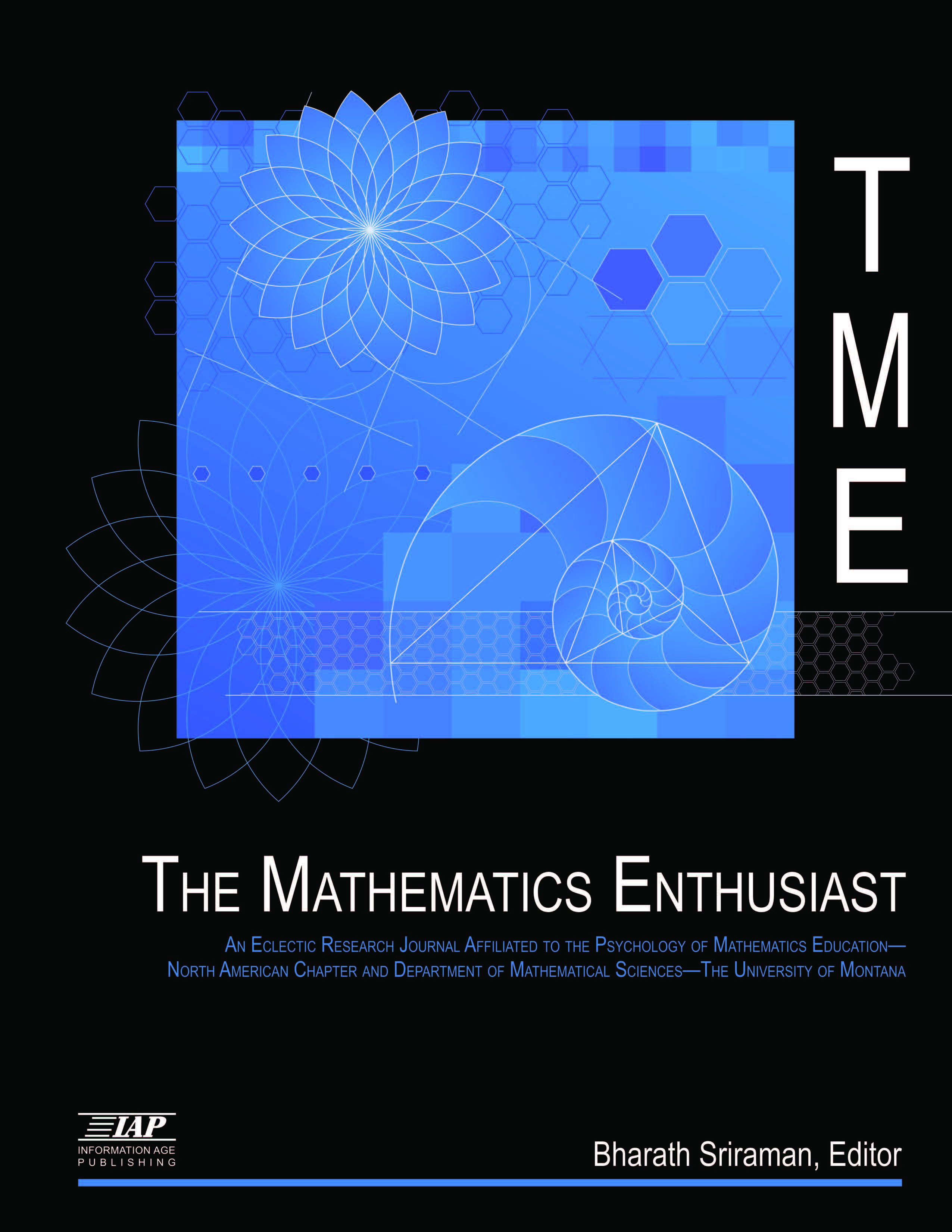
Volume
5
Issue
1
Abstract
1. A comment. I discussed the contents of my paper with colleagues on many different occasions. By their reactions they seem to divide themselves into two camps. One camp takes the stance of: Are you crazy to mention such things in the classroom? We are charged to teach mathematics, and that’s it. Who cares if Einstein never learned to swim? The other camp however takes an opposite stance: Such items are really important for students to know because they help students to think about the lives and times of the men who created the material they are studying; our lessons are richer because of such stories, and are our students are richer too. Obviously I have taken the latter viewpoint, but I am well aware that by simply presenting the topics and tidbits that I do, I am publicly displaying areas and concerns in my own personal belief system. I like to think that I am helping students decide their own stances on such issues, but I am well aware that some tidbits and stories are chosen at the expense of others. When I first heard that Beverly Sills had deaf children who never heard a note their mother had sung, I said to myself, that is an example of tragic irony–and I have used this as my exemplar of tragic irony ever since. And when I first heard that Einstein (and subsequently others) called George David Birkhoff “the biggest anti-Semite in America” I was speechless; but it is a fact that G.D. Birkhoff did his utmost to keep Jews from major universities in America. Saunders Mac Lane, another giant of 20th century mathematics (and a contemporary of Garrett Birkhoff, G.D.’s son who, like his father was also the chairman of the mathematics department at Harvard, but who most definitely held opposite views on this issue than his father) came to G.D.’s defense, but his defense was limp. MacLane said: Look, those were the times; George David simply wanted to give American jobs to Americans. It’s as simple as that. Such a defense is easy to understand, but hard to swallow. Jobs, particularly in the academic world, should go to the most qualified candidate–handing out academic positions on other criteria is a recipe for mediocrity– such is the case today, and such was the case in the 1940’s. There is more to teaching mathematics than the mathematics itself–I am well aware that it is not politically correct these days to point out flaws, foibles, infirmities and ironies in the lives of others–but on the other hand, in some cases it seems wrong to ignore them.
First Page
37
Last Page
44
Recommended Citation
Eisenberg, Ted
(2008)
"Reaction to the Reactors,"
The Mathematics Enthusiast: Vol. 5
:
No.
1
, Article 6.
DOI: https://doi.org/10.54870/1551-3440.1083
Available at:
https://scholarworks.umt.edu/tme/vol5/iss1/6
Digital Object Identifier (DOI)
10.54870/1551-3440.1083
